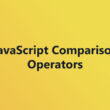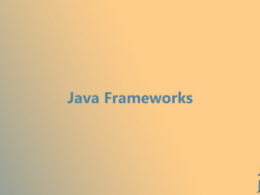Code Quality Unlocked: The Best Java Static Code Analysis Tools
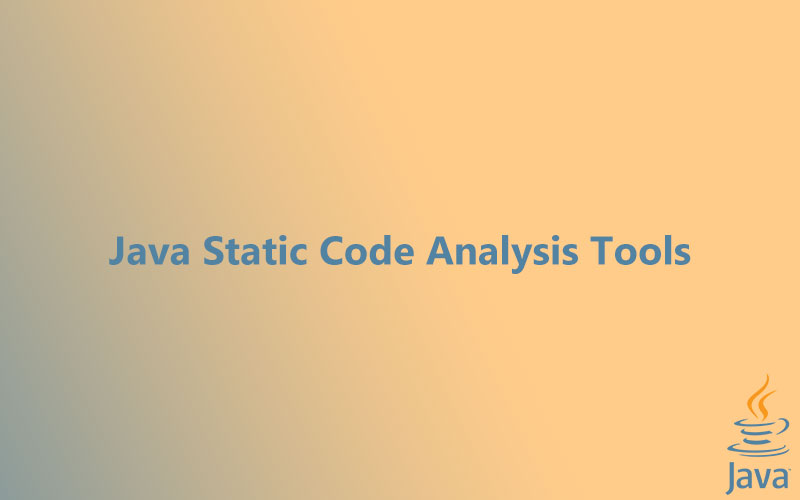
Imagine a world where every keystroke you made forged impeccable Java code—utterly free from errors, security vulnerabilities, and inefficiencies. This Utopia isn’t just a coder’s daydream; it’s an attainable reality through Java static code analysis tools.
Launching into a project without these robust guardians of code quality is like sailing a ship through murky waters without a compass. These tools scrutinize your source code without executing it, unveiling a trove of potential improvements right at your fingertips.
Within this article, uncover the intricacies of automated code review platforms and how they magnetize the iron filings from the sandbox of your Java codebase.
As a linchpin for maintaining sanity in complex projects, understanding static analysis goes beyond mere luxury—it’s an essential staple in the diet of any serious Java developer.
By the final punctuation mark, grasp how these tools entwine perfectly with continuous integration, bolster security against code vulnerabilities, and streamline the enforcement of coding standards.
Dive deep into an exploration of the automated Java analyzers that orchestrate a symphony from the cacophony of unrefined code.
Java Static Code Analysis Tools
| Java Static Code Analysis Tool | Supported Languages | Main Features | Ease of Use | Integration | Pricing |
|---|---|---|---|---|---|
| Synopsys Coverity | Java, C/C++, C#, JavaScript, and more | High accuracy, policy compliance, security vulnerability identification | Moderate | CI/CD integration, IDEs | Paid |
| JUnit | Java | Primarily a testing framework rather than a static analysis tool | Easy | Widely integrated in Java development environments | Free, open-source |
| Snyk Code | Java, JavaScript, TypeScript, Python, and more | Security-focused, IDE integration, real-time feedback | Easy | GitHub, GitLab, Bitbucket | Free tier, Paid plans |
| CodeClimate | Java, PHP, Ruby, JavaScript, and more | Automated code review, technical debt assessment | Easy | GitHub, GitLab, Bitbucket | Free for public repos, Paid plans |
| SonarQube | Java, C#, PHP, JavaScript, and more | Code quality metrics, security vulnerability detection | Moderate | CI/CD integration, GitHub, Azure DevOps | Community (Free), Developer, Enterprise editions |
| Veracode Static Analysis | Java, C/C++, .NET, and more | Security auditing, compliance reporting | Moderate | Extensive integration options | Paid |
| Checkstyle | Java | Coding standard enforcement, customizable rules | Moderate | Ant, Maven, Gradle, and others | Free, open-source |
| Find Security Bugs | Java | Security-specific bug detection for Java | Moderate | Plugin for FindBugs, which integrates with build tools | Free, open-source |
| Fortify Static Code Analyzer (SCA) | Java, C/C++, .NET, JavaScript, and more | Security-focused, customizable rulesets | Moderate | CI/CD tools, IDEs | Paid |
| CAST | Java, C/C++, .NET, and more | Code quality measurement, architectural flaws identification | High (Complex) | Multiple integration options | Paid |
| Codacy | Java, Python, Scala, JavaScript, and more | Automated code review, security analysis | Easy | GitHub, GitLab, Bitbucket | Free for public repos, Paid plans |
| SpotBugs | Java | Successor to FindBugs, bug pattern detection | Moderate | Plugins for Maven, Gradle, Ant, and others | Free, open-source |
| Infer | Java, C/C++, Objective-C | Bugs and performance issues detection | High (Complex) | Command-line interface | Free, open-source |
| ReSharper | Primarily .NET (but can be used for Java via Rider IDE) | Code quality analysis, code refactoring | Easy | Integrated with JetBrains Rider IDE | Paid |
| PVS-Studio | Java, C/C++, C# | Security, optimization, and quality auditing | Moderate | Plug-in for MS Visual Studio, Rider, and others | Paid |
| PMD Java | Java | Code quality scanning, rule-based | Moderate | Supports common build tools and IDEs | Free, open-source |
| Spoon | Java | Source code transformation and analysis | High (Complex) | Standalone tool, Maven | Free, open-source |
Synopsys Coverity
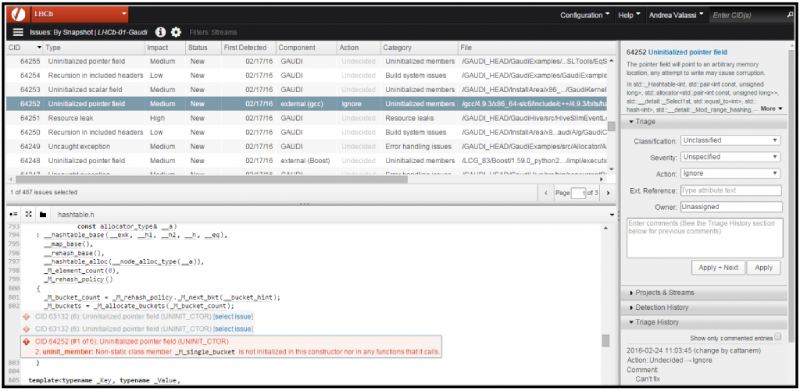
Remarkable craftsmanship in software becomes reality with Synopsys Coverity’s tight-knit scrutiny over your Java code. It peels back layers, exposing pitfalls and bottlenecks, transforming code review into a strategic asset. Here, efficiency and risk management intertwine, offering a sublime blend of precision and insight.
Best Features:
- Advanced static analysis
- Security vulnerability identification
- Seamless CI integration
What we like about it:
The gem here is its meticulous attention to potential security breaches, making it invaluable for crafting a robust final product that stands unyielding against threats.
JUnit
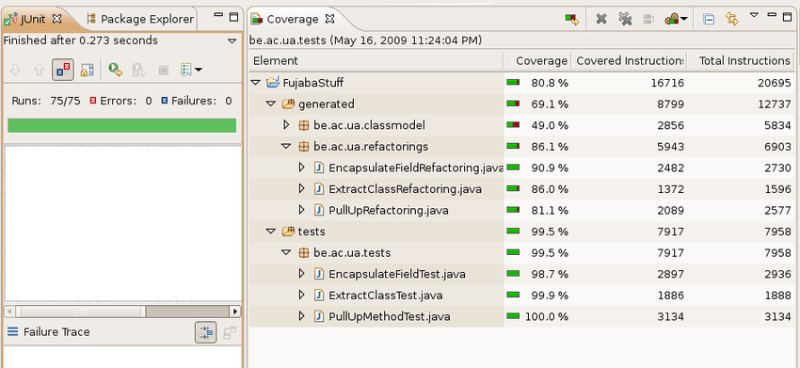
JUnit has woven itself into the fabric of Java unit testing like no other. A beacon for continuous integration, it offers the flashlight needed to delve into the darkest corners of code, ensuring every unit performs as intended. Harness the power of JUnit and make individual components of your codebase indomitable.
Best Features:
- Simple, powerful testing framework
- Ideal for Test-Driven Development
- Wide community support
What we like about it:
JUnit’s unwavering dominance in the realm of unit testing makes it the cornerstone of any reliability-focused development effort.
Snyk Code
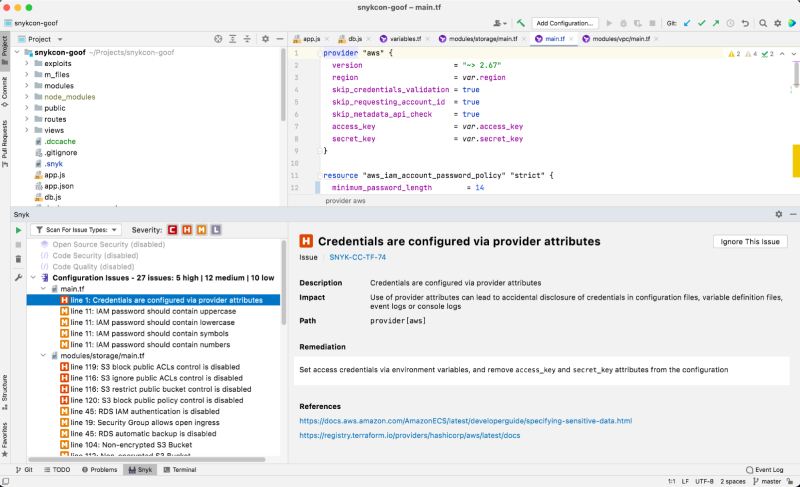
Rein in the potential mayhem of vulnerabilities with Snyk Code, where security is more than an afterthought—it’s the lifeline. This tool does not just point out what’s amiss; it steers you toward salvation with suggested fixes, weaving security tightly into the development lifecycle.
Best Features:
- Real-time feedback
- Automated fix suggestions
- Open-source vulnerability database
What we like about it:
Its real-time feedback system acts not just as a detector but as a guardian, offering not only alerts but also salvation paths.
CodeClimate
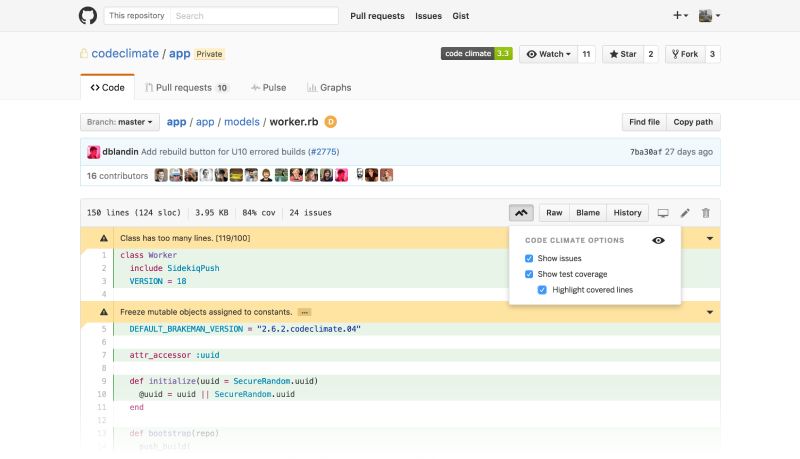
CodeClimate orbits around your development process, a satellite meticulously surveying every inch of your Java code quality terrain. Revel in its automated, comprehensive reports, and witness your code’s health metrics in a clear, actionable dashboard.
Best Features:
- Automated code review
- Technical debt assessment
- Maintainability scores
What we like about it:
The maintainability scores offer an immediate, crystal-clear gauge of your code’s long-term wellness and agility.
SonarQube
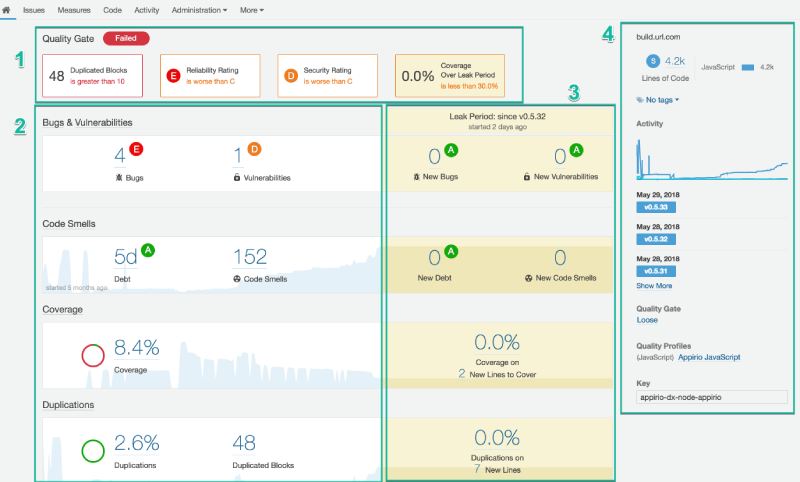
Dive deep into SonarQube’s ocean of code analysis, where every dive surfaces actionable insights for coding best practices. SonarQube is not just an analysis tool—it’s an ally, constantly harmonizing your code to the tunes of software development excellence.
Best Features:
- Detailed code quality history
- Customizable coding rules
- Extensive language support
What we like about it:
With SonarQube, it’s the rich insight into the code’s history that stands out, portraying not just a snapshot but the entire journey of your code’s quality.
Veracode Static Analysis
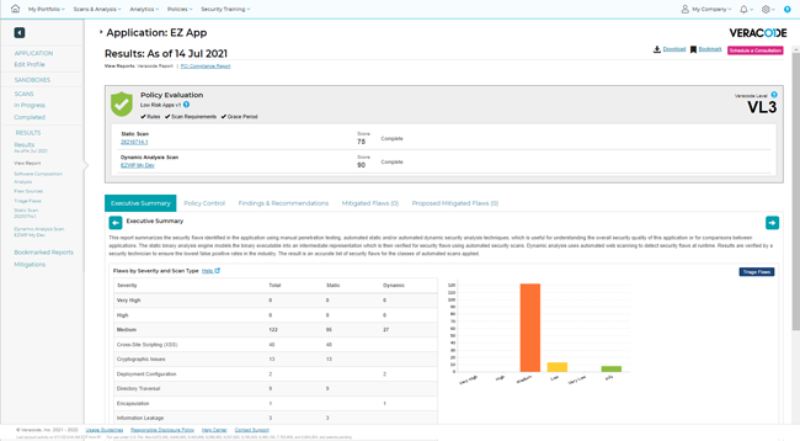
In the vast expanse of cyberspace, Veracode stands as a sentinel, unwavering in its quest to fortify your Java applications against lurking cyber threats. It delivers a suite that’s as comprehensive in security vulnerability scans as it is precise in execution.
Best Features:
- Scalable cloud-based platform
- Integrations with development pipelines
- Detailed security reports
What we like about it:
Its cloud-based prowess and seamless integration with development pipelines empower teams to weave security tightly into their software’s DNA.
Checkstyle
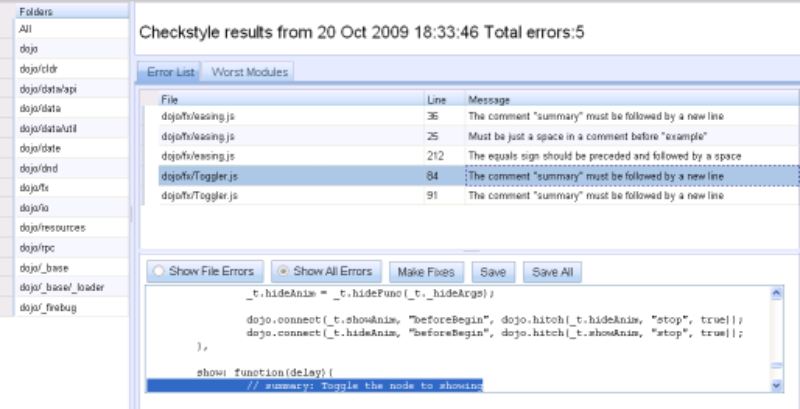
With the concerto of Checkstyle’s checks and balances, orchestrate a harmonious alignment of your code with the Java coding standards. It’s part watchdog, part maestro, ensuring every note adheres to the score you define.
Best Features:
- Customizable check configurations
- Code style guidelines enforcement
- Integrations with IDEs and CI tools
What we like about it:
Its customizable nature caters to personal or organizational standards, making sure your code doesn’t just work—it dazzles.
Find Security Bugs
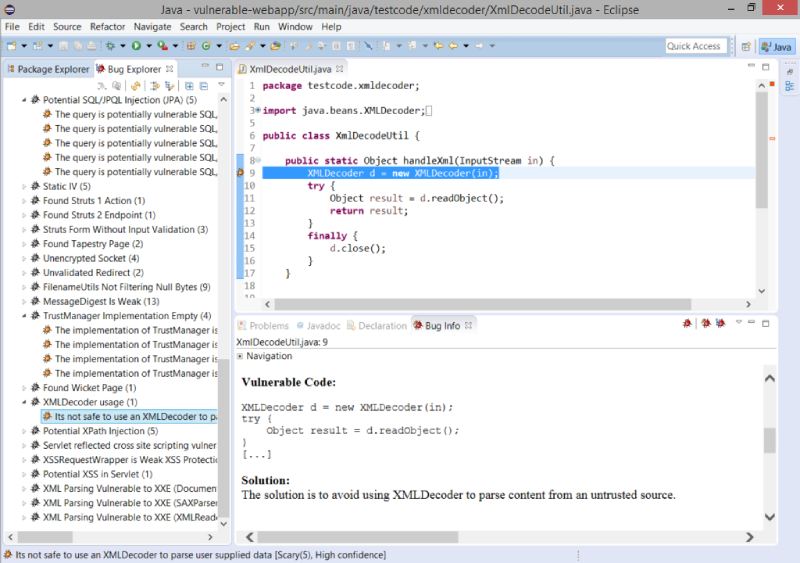
Find Security Bugs plays the role of the bug detection sleuth with a keen eye for Java application vulnerabilities. It weaves through your code with a fine-toothed comb, spotting the tell-tale signs of insecurities before they can be exploited.
Best Features:
- Specialized in Java security
- Extensive bug pattern database
- Open-source and plugin-based
What we like about it:
Its focused expertise on Java security makes it an indispensable tool in the fight against would-be exploiters.
Fortify Static Code Analyzer (SCA)
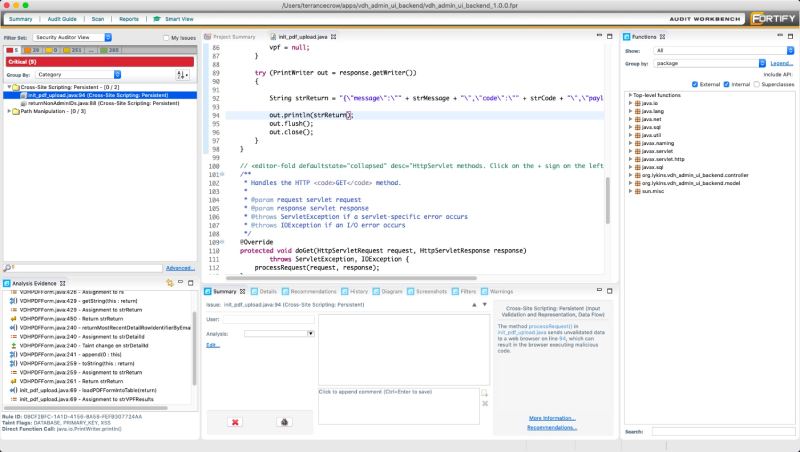
Fortify SCA is the architect of secure software design. Construct a steel framework around your Java code that stands resilient against the tempests of cyber threats.
Best Features:
- Wide range of detected issues
- Rich reporting and audit features
- Integration with IDEs and build tools
What we like about it:
The breadth of issues detected places Fortify SCA in a class of its own, encompassing everything from injections to risky data flows.
CAST
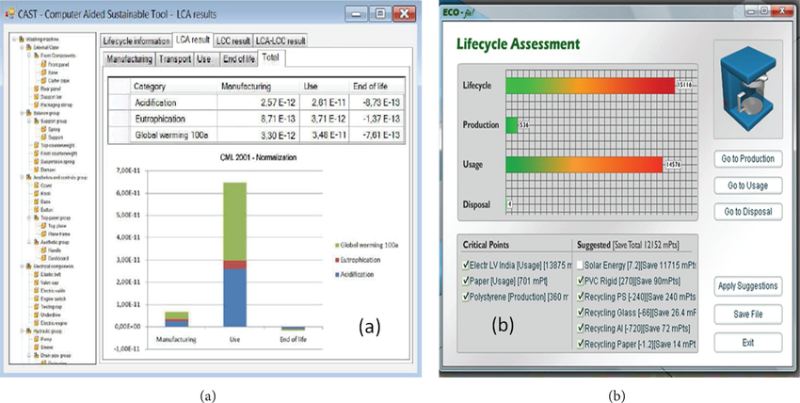
As spellbinding as a magician, CAST analyzes software code with an abracadabra of algorithms. Presenting intelligence that cuts through complexities, ushering in enhancements that beckon with every metric uncovered.
Best Features:
- Comprehensive codebase intelligence
- Benchmarking against industry standards
- Multilingual analysis
What we like about it:
CAST’s holistic approach transcends individual errors, presenting a multidimensional vision for overall software health.
Codacy
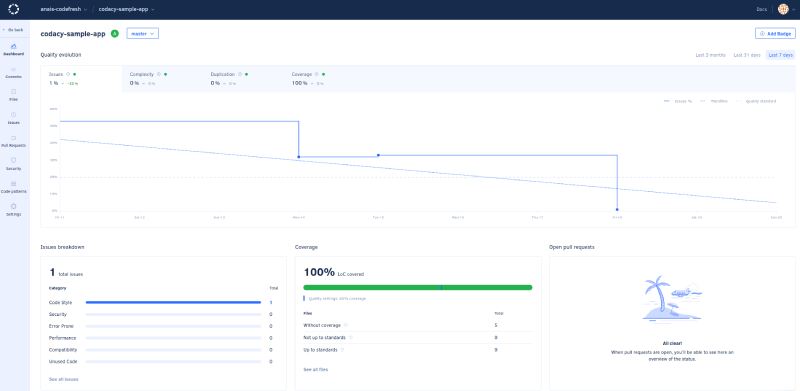
Swing the pendulum towards excellence with Codacy’s automated reviews. Dance as it leads—step by precise step—towards a future where error-prone deployments are but a distant echo.
Best Features:
- Automated pull request reviews
- Code quality tracking
- Security best practices enforcement
What we like about it:
Codacy shines with its automated pull request reviews that act like a diligent co-pilot on your software development journey.
SpotBugs
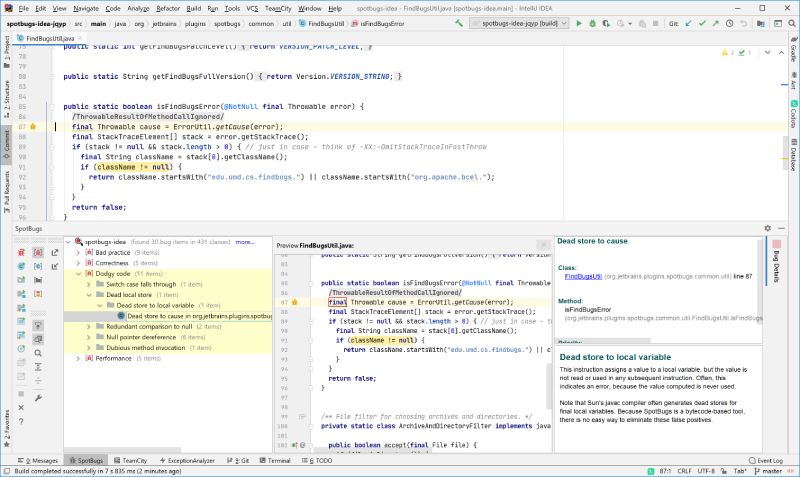
SpotBugs is the microscopic lens, magnifying the minutiae within Java bytecode that whispers tales of potential flaws and inefficiencies—a vigilant guardian against bugs.
Best Features:
- Bytecode analysis
- Extensible with plugins
- Community-led project
What we like about it:
Its prowess lies in the distinctive advantage of bytecode analysis, setting SpotBugs apart in the realm of bug detection software.
Infer
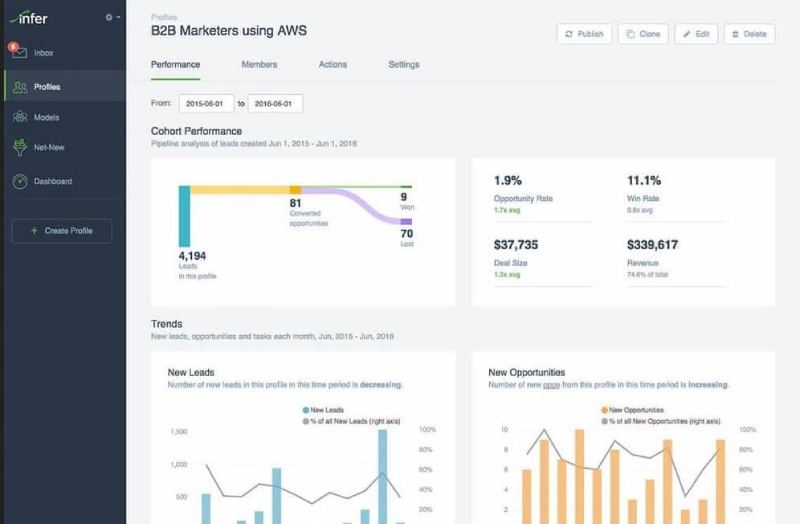
Take the helm with Infer, navigating the complexities of static analysis, turning ripples of potential issues into a smooth sail towards high-quality, reliable Java applications.
Best Features:
- Detection of concurrency and null dereference issues
- Incremental analysis
- Cross-platform compatibility
What we like about it:
Infer’s incremental analysis shines, valuing your time while consistently safeguarding your code—be it a simple line change or a sweeping module revamp.
ReSharper
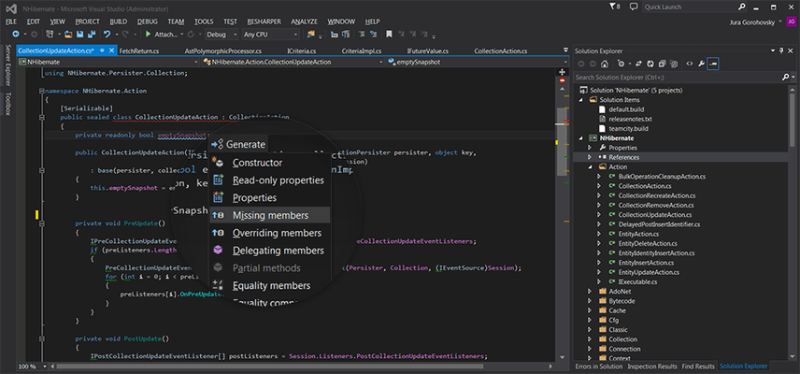
Unveil the artistry in coding with ReSharper, the sculptor’s chisel, meticulously chipping away rough edges to reveal the ideal shape of efficient, clean Java code.
Best Features:
- Code refactoring
- On-the-fly code analysis
- Coding assistance and tips
What we like about it:
ReSharper’s code refactoring capabilities are a cut above, transforming and modernizing legacy code into a thing of beauty with graceful precision.
PVS-Studio
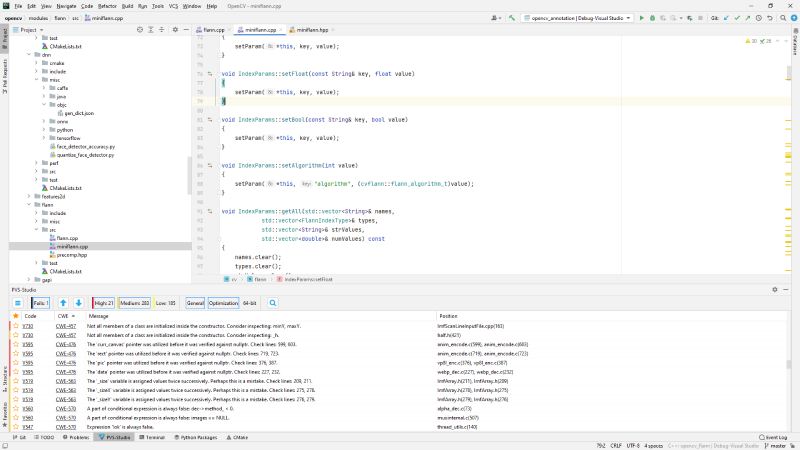
Embark on a diagnostic quest with PVS-Studio, wielding its analytical specter to uncover the specters haunting your Java code—errors, inefficiencies, and the unseen.
Best Features:
- High detection rate of potential errors
- Integrated into DevOps and CI processes
- Helps with code optimization
What we like about it:
The high error detection rate acts as PVS-Studio’s spearhead—a beacon in the quest for flawless, high-caliber code.
PMD Java
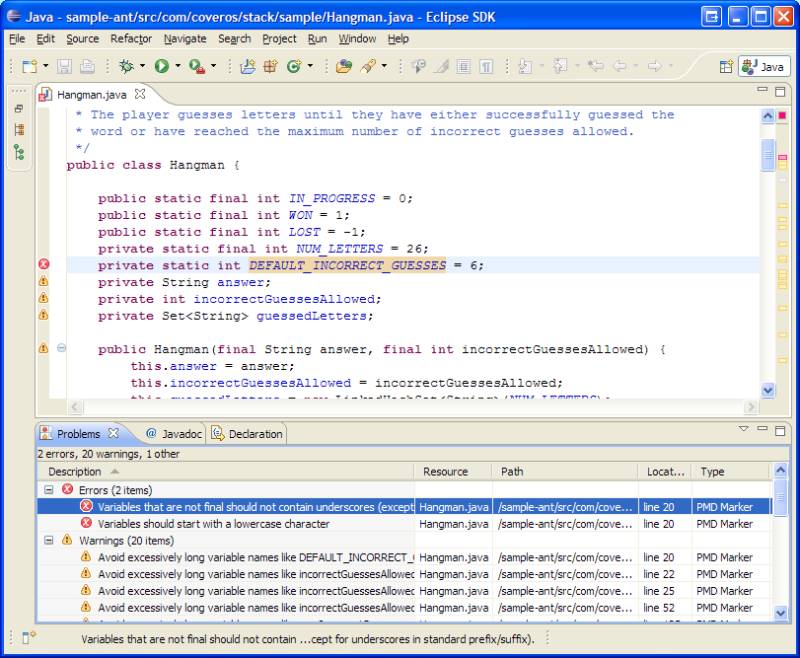
Chart a course through the tumultuous seas of development with PMD Java, ensuring that your project does not drift off the route of code maintainability and standards.
Best Features:
- Coding rule sets
- Code size and complexity analysis
- Easy to integrate with popular tools
What we like about it:
PMD Java’s range of customizable rule sets serves as the compass, guiding teams to neat, disciplined, and orderly code.
Spoon
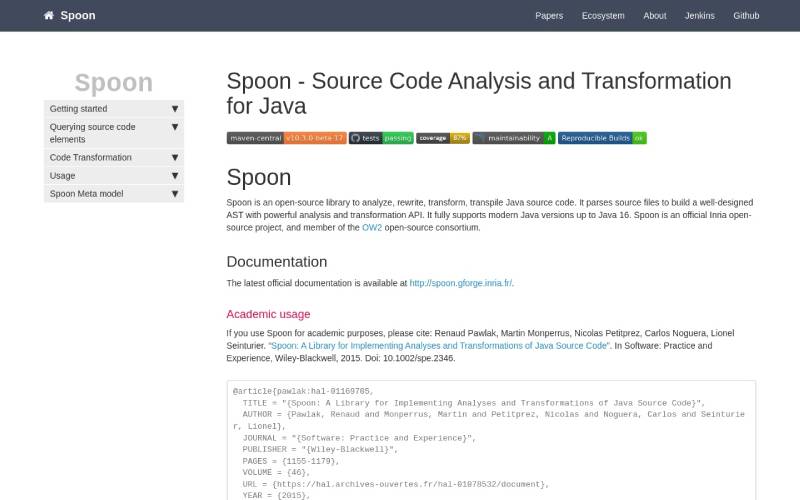
Spoon offers a palette, painting detailed and transformable representations of Java source code, allowing for creative yet comprehensive analysis and transformations.
Best Features:
- Source code transformation
- Detailed analysis
- Enables advanced code processing
What we like about it:
The tool excels with its source code transformation capabilities, fostering an environment where creativity meets technical prowess.
FAQ On Java Static Code Analysis Tools
What exactly are Java static code analysis tools?
These are the sentinels of code integrity, meticulously sifting through Java code without executing it. They identify patterns that could signal bugs, enforce coding standards, and ensure compliance, thereby upholding code quality and security.
How do these tools fit into the software development lifecycle?
Incorporated during the SDLC, especially during the coding and testing phases, these tools orchestrate with continuous integration systems. They serve to catch issues early, making remediation less costly and keeping the codebase maintainable.
Are Java static code analysis tools only for finding bugs?
Beyond bug hunting, they assess code quality metrics and perform security vulnerability scans. They are like a Swiss Army knife – versatile, assisting in the optimization and adhering to Java coding best practices.
Can these tools enforce coding standards?
Absolutely. They act as the enforcing arm of coding guidelines, ensuring every line of code is in compliance with predefined standards. They’re not just tools, they’re sculptors, shaping the code to fit the epitome of form and function.
How do static code analysis tools differ from IDE error checking?
While IDE error checking catches basic syntax errors in real-time, static code analysis dives deeper. Think of it as going beyond the surface, analyzing patterns and offering a strategic view of codebase health.
Will using static code analysis tools speed up development?
Indeed, by automating code review and bug detection, they free developers to focus on creating and innovating. They’re like time-benders, reclaiming hours otherwise lost in manual reviews.
Can they be integrated with other development tools?
As adaptable allies, they meld seamlessly with development environments and conversion tools – akin to chameleons, blending in to enhance workflows across various platforms.
How often should code be analyzed using these tools?
Regularly – with each significant code commit. Integrating these tools with CI pipelines ensures an as-you-go approach, catching issues like defect tracking systems before they amplify.
Are there free Java static code analysis tools available?
The open-source realm is rife with options. They may not all boast the prowess of their paid counterparts, but they compile a respectable toolkit for developers on a shoestring budget.
How do static code analysis tools impact code security?
They’re like vigilant, unseen guardians. Unearthing security loopholes, they highlight potential exploits, fundamentally fortifying the application against threats in the evolving digital landscape.
Conclusion
In the digital orchestra that is software development, Java static code analysis tools conduct an ensemble of orderly code. They harmonize the symphony of keystrokes into a secure, efficient masterpiece. Embrace the metamorphosis of a raw codebase into a fortified citadel of functionality.
These tools aren’t just utility; they’re gatekeepers of quality, ensuring each line echoes the principles of coding best practices and security audits. The alchemy of turning source code into a consistently reliable and maintainable structure is no longer arcane.
As the curtain falls on this narrative, remember: the nexus between code quality and these analytical powerhouses is not to be underestimated. They are the unsung heroes behind every seamless application, silently upholding the bastion of software integrity. Carry forth this knowledge and let it guide the keystrokes that craft tomorrow’s Java legacy.
If you liked this article about Java static code analysis tools, you should check out these articles also:
- Make New Friends: Top Apps Like Wink
- App Store Alternatives: Why Use Apps Like Panda Helper
- Top Apps Like BlueStacks for Mobile Gaming
- How Are Desktop App, Web App, and Mobile App Similar and Different? - June 14, 2024
- Mastering JavaScript Logical Operators for Effective Logic - June 14, 2024
- Innovative Apps Like Google Lens To Try - June 13, 2024




